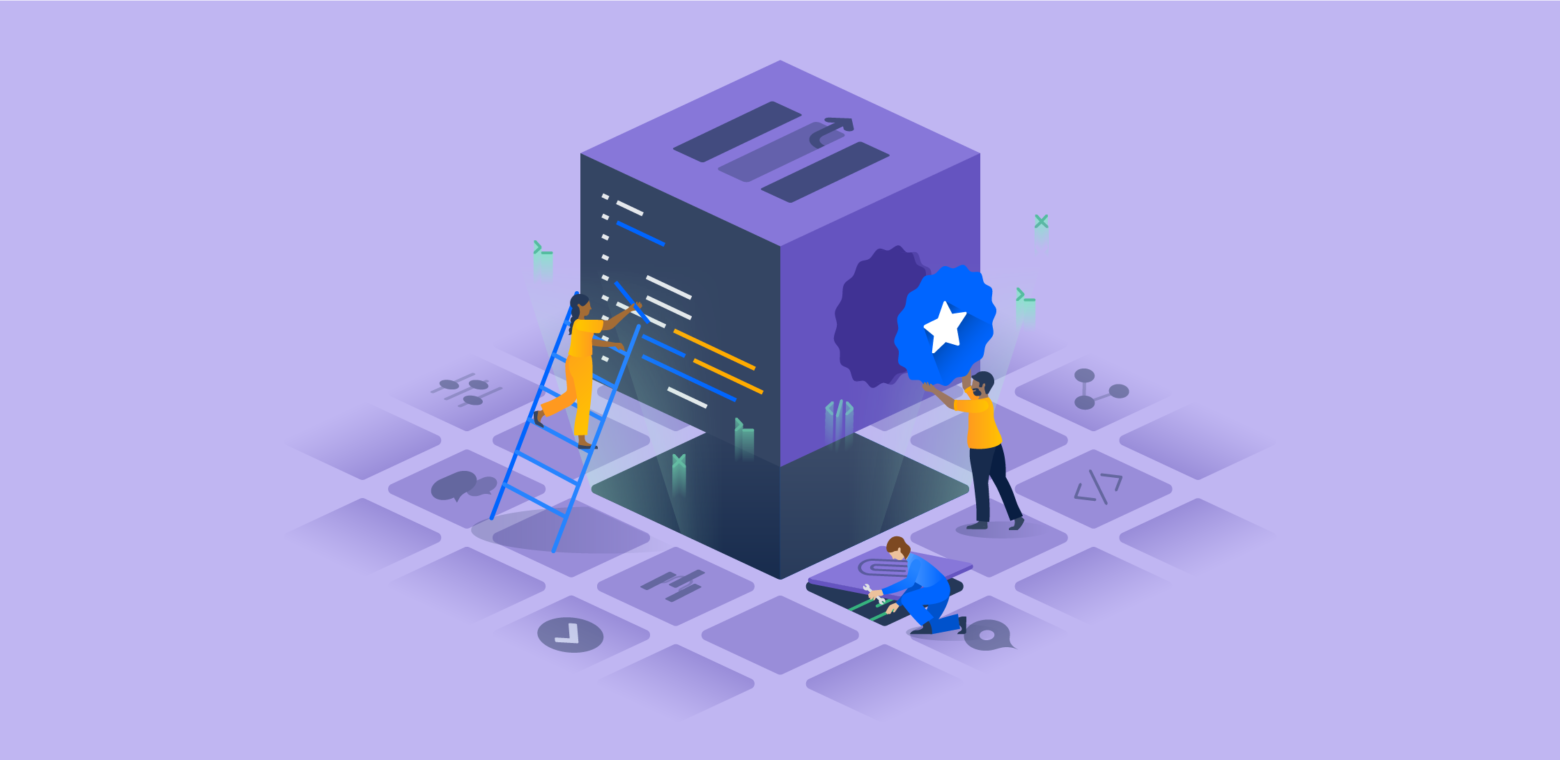Since the early days of Atlassian, our vision has been to combine the collective force of our company with an ecosystem of developers. As a result, more than 160,000 customers continue to choose our products because of their power and flexibility.
Today, the Atlassian Ecosystem has grown into a community of more than 25,000 members, consisting of in-house developers who build custom apps for their teams and third-party developers who build apps for the Atlassian Marketplace. As one of the largest enterprise software marketplaces in the world, we’re on track to reach a milestone that few others have: $1 billion in total lifetime sales.
The real value, however, comes from the power of extensions to expand the functionality of the Atlassian platform and help teams achieve more each day. This value is represented by the 4,000-plus apps and integrations available to customers through our Marketplace, as well as the tens of thousands of private apps – seven times the amount on the Marketplace – built by in-house developers for their own organizations.
In the spirit of this work, we’re excited to announce the next stage of our Ecosystem journey by introducing a new cloud development platform: Forge. Forge will empower developers to more easily build and run enterprise-ready cloud apps that integrate with Atlassian products. The backbone of today’s announcement builds upon the recent momentum and investments we’ve made to our cloud platform.
The Forge platform is a reimagining of cloud app development for our ecosystem, composed of three advanced components:
- A serverless Functions-as-a-Service (FaaS) hosted platform with Atlassian-operated compute and storage for app developers
- A flexible declarative UI language (Forge UI) that enables developers to build interactive user experiences across web and devices with just a few lines of code
- A state-of-the-art DevOps toolchain, powered by the intuitive Forge Command Line Interface (CLI).
Cloud, simplified
Forge solves very real problems for developers by removing some of the complexity (and cost!) associated with cloud app development. Creating apps for most cloud ecosystem platforms holds developers responsible for building, hosting, and operating an entirely independent web service, which requires expertise in cloud architecture and management.
With our new developer platform, we eliminate these challenges by letting Forge do all the heavy lifting. Forge helps solve for a whole host of cloud considerations, including:
- Trust: As personal information goes digital, privacy, transparency, and security are more important than ever before. With Forge UI, developers and app consumers benefit from built-in, best-in-class security for apps, by default. Plus, thanks to Atlaskit, when Atlassian makes an update, your apps won’t break.
- Running anywhere: Atlassian customers want experiences that are consistent across their products and apps, and across their devices and web. Forge’s UI enables users to build once for both web and mobile.
- Moving up the stack: In general, developers aren’t concerned with where their code is running – they simply want to spend less time on implementation details of the code, and more time on providing customer value. Forge’s serverless FaaS model enables developers to write single functions rather than building entire web applications.
We know that not all use cases lend themselves to the Forge model. Remote-hosted apps, like those built on our Connect framework, aren’t going anywhere – they’re part of the same future that we envision for our cloud ecosystem.
Solutions, delivered with Atlassian-hosted infrastructure
At the heart of Forge is a serverless FaaS hosting platform, powered by AWS Lambda. In general, a FaaS platform enables developers to build and manage application functionalities without the complexity of orchestrating the infrastructure commonly associated with developing and launching an app. We’re seeing that developers want to spend more time solving business problems and creating an awesome user experience, and less time figuring out how to configure cloud services to run the app. With Forge, developers can now write a single function, reducing the amount of code needed to write (and operate) by an order of magnitude. We believe this will ultimately lower the barrier to entry for anyone wanting to write apps and customizations for our products.
A FaaS platform also lets developers eliminate common pain points such as authentication, identity, scaling, and tenancy. Apps created with Forge will run inside a second security layer that enforces tenancy isolation and data egress restriction by design, which translates into more meaningful security and privacy guarantees for Atlassian users.
Cross-platform support with Forge UI
Using Forge UI – one of the core components of the new platform – developers can create and customize apps in minutes. It’s a declarative language, making it easy to quickly build native, flexible, and trusted UI interfaces for apps. By building on the Atlassian infrastructure, an app’s user experience becomes more consistent with our product’s user experience by consistently running the latest version of Atlaskit – a win for developers and our customers.
While Forge UI saves developers time and effort and creates a more seamless experience for users, it’s also a critical part of Atlassian’s trust and security model. By abstracting away the process of rendering the UI layer, Forge makes stronger guarantees about how apps present or transmit sensitive data, such as user-generated content and personally identifying information.
Rapid development with the intuitive Forge CLI
The Forge CLI – another core component of the new platform – is a command line interface tool that makes managing Forge apps easy. We’re creating resources like built-in onboarding, intuitive commands, and a set of templates that anyone can use, making the process of getting started with Forge easy. In addition, the creation, testing, and deployment of apps is part of a DevOps toolchain with continuous delivery powered by Bitbucket Pipelines.
Interested in joining the Forge beta?
Today, we’re launching Forge in a closed beta. This private beta gives some members in our developer community a chance to start building apps on Forge now, while providing us invaluable feedback that will help us to iterate upon and improve Forge for developers worldwide.


